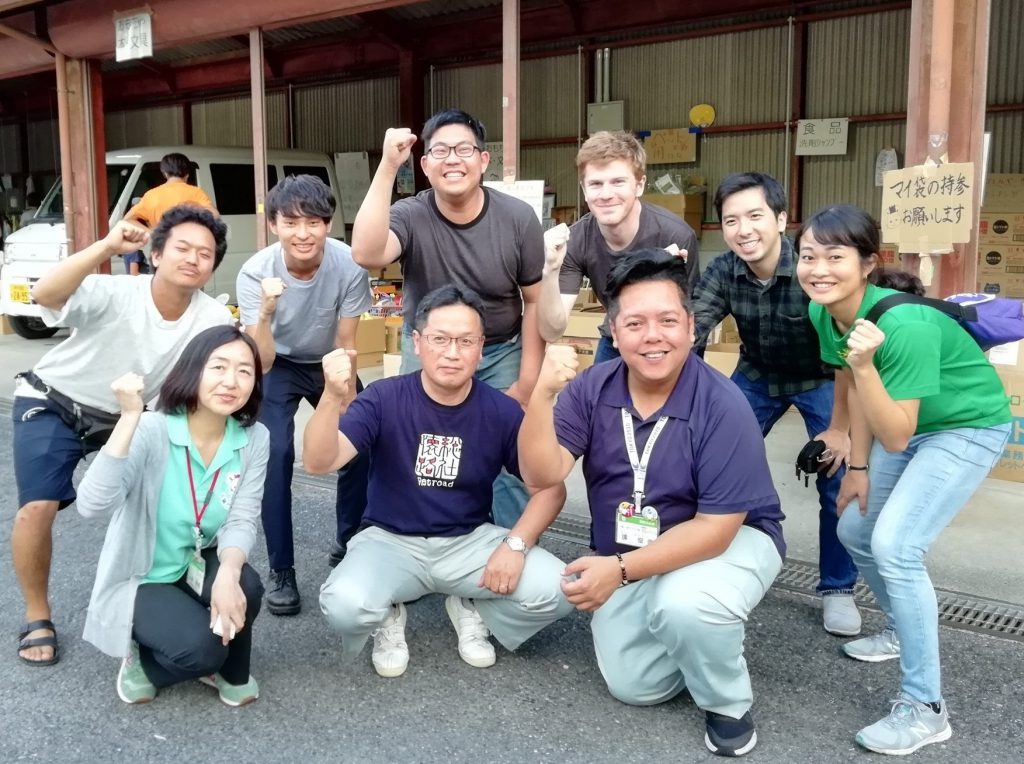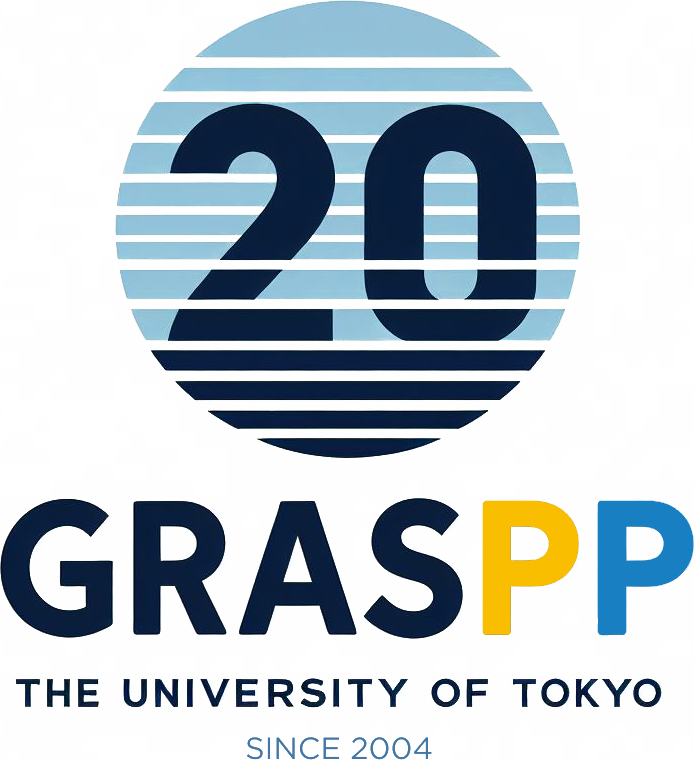 A student-led seminar titled “Japanese Society’s Response towards West Japan Flooding: Sharing Volunteer Experiences” was held on October 20, 2018 at GraSPP. A group of the GraSPP students who volunteered to help with the Okayama flood recovery efforts presented their experiences and shared their findings with the audience, including the members of the ASEAN, Central & South Asia Youth Mission to Japan 2018†.
A student-led seminar titled “Japanese Society’s Response towards West Japan Flooding: Sharing Volunteer Experiences” was held on October 20, 2018 at GraSPP. A group of the GraSPP students who volunteered to help with the Okayama flood recovery efforts presented their experiences and shared their findings with the audience, including the members of the ASEAN, Central & South Asia Youth Mission to Japan 2018†.
The student team, during their three-day stay in Okayama in mid-September, interviewed the municipal government of Soja City and gained insights on how city’s disaster prevention policies were designed along with the increase of foreign population. At the seminar, students shared how they felt through interacting with victims and what they learnt from the Soja case. Presentations were followed by discussion on how to make the good use of Japan’s cases and policies for other countries faced with disaster risks and damages. The student team consisted of Agung Putra Sulaiman, Kasumi Fujita, Kenneth Jeng, Ko Mieno, Liam Thomas and Shinnosuke Futagawa.
† Japan’s Ministry of Foreign Affairs (MOFA) invited a youth group under its “ASEAN, Central & South Asia Youth Mission to Japan 2018” program with a view to nurturing participant commitments on environment conservation and disaster prevention as well as to promoting understanding of Japan. Fourteen GraSPP alumni from Cambodia, India, Indonesia, Kazakhstan, Kyrgyzstan, Myanmar, Philippines, Sri Lanka and Thailand joined the Mission to stay in Japan for one week to participate in various activities.
<A summary report of the seminar prepared by Liam Thomas>
On October 20, a group of the GraSPP students who volunteered to help with the Okayama flood recovery efforts presented our experiences and findings to the audience, including the members of the ASEAN, Central & South Asia Youth Mission to Japan 2018. Our team presented on a number of different perspectives, ranging from how best volunteers should equip themselves to handle the dangers in disaster recovery, to macro level issues that leave room for policy solutions.
Within our seminar, we focused on how all the issues that the GraSPP student took from the experience could be related to the context of the countries of the audience in front of us. After our presentation, teams from Myanmar, Philippines and Indonesia also briefed us and the rest of the audience about their own initiatives in disaster management. I felt this contributed significantly to my own understanding of the topic, as they explained many issues involved that revealed more about the many significant collateral impacts resulting from the initial large impact of a disaster. For instance, the Philippines team explained their experiences of how the Central Bank plays a substantial role in facilitating the re-introduction of banking to affected regions, such as having a flexible policy about branch relocation and deferring the submission of regulatory reports.
After these presentations, we discussed the differences in our various scenarios with a particular focus of the impact of encouraging volunteering initiatives. Many questions were directed to us on the details of our volunteer trip, as many of the participants were contemplating the feasibility of a volunteer program within their own countries. We also discussed the government program Japan Voluntary Organizations Active in Disaster (JVOAD), as other members of the seminar talked about the great demand for government efforts to promote volunteering in their countries.
Overall, I found the event to be remarkably insightful and it greatly supplemented my volunteer experience while in Okayama. This comment was written with regards to those who were able to make this experience possible. Thank you very much to NPO Tabi-Shonin for welcoming us to their volunteering center for three days, Soja City Hall for receiving us warmly and sharing their experiences, Peace Boat Disaster Relief Volunteer Centre for their time travelling to The University of Tokyo and meeting with us, and finally the GraSPP which has provided us with an opportunity to spread the words and experiences to the audience, including GraSPP alumni from Cambodia, India, Indonesia, Kazakhstan, Kyrgyzstan, Myanmar, Philippines, Sri Lanka and Thailand.




